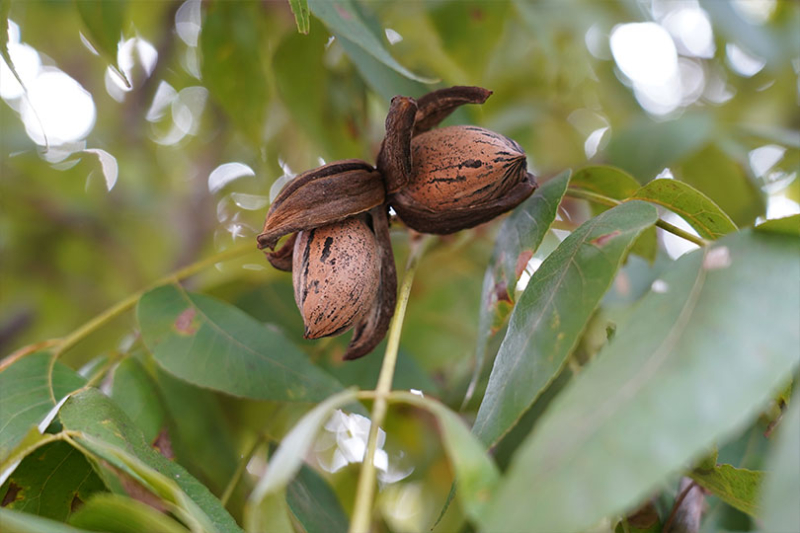By Emmy Powell
Communications Specialist
Pecan growers across Texas are facing mixed outcomes for the 2024 season as unpredictable weather, including both drought and heavy rainfall, impacted orchards differently throughout the state.
Some areas of the state have been too dry, while others have been too wet, creating challenging growing environments.
Comanche farmer Kinley Sorrells, who grows 1,200 acres of pecans, said his yields this year are a “mixed bag.”
“It’s kind of a mixed-up situation. This year, our largest planting variety, Wichita, has a good crop,” Sorrells said. “Pawnee, Cheyenne, Kiowa are lightly loaded. Of course, we’re coming out of a two-year drought and had a lot of limbs die back and even lost some trees due to the drought over the last two years.”
Sorrells noted his area received six to seven inches of rain in the spring. And several weeks ago, they received about seven-and-a-half inches of rain in three days.
“We had early spring rains, which really helped. We’ve had some rather timely rains since then. So, that’s going to be a great benefit for the quality of our pecans,” he said.
After the extended drought, Sorrells is seeing positive signs in his orchards. His pecans are larger and of higher quality compared to last year’s crop.
Texas A&M AgriLife Extension Service experts, however, note season-to-season factors continue to hinder the state’s overall pecan production.
Pecan trees typically produce good to heavy crops followed by a light to very light crop the following year, but the growing cycle is off.
“Things are just out of sync, and we’re not seeing the production our 80,000-plus acres of pecans are capable of,” Monte Nesbitt, AgriLife Extension horticulture specialist, said. “We should be a 50-million-pound producer in a good year, but we’re estimating another year around 28 to 32 million pounds.”
Additionally, poor wholesale pecan prices have intensified economic challenges. But prices for direct-to-consumer markets and direct-to-retail markets are strong.
“We are in a slump as far as our market is concerned, like all the rest of the farmers,” Sorrells said. “All of our input costs have gone up tremendously even this year, and there’s no way we can recoup from that because we can’t get what we really need for our pecans. So, we need that market to stabilize and it to get up to a livable amount if we’re going to stay in business.”


Leave A Comment